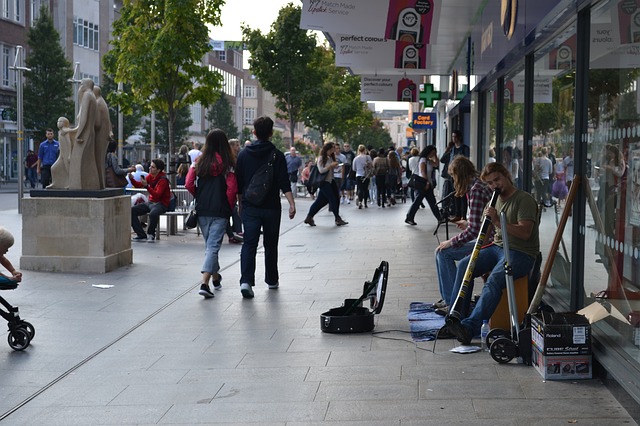Commercial property definition
Property can be defined as something that a person or business has legal title over. Having legal title over property provides the owner with certain enforceable rights. Property may be categorised as tangible (‘real’) or intangible. In the built environment, tangible property refers to real estate or land, whereas ‘personal property’, or chattel, is all that which is not ‘real property’.
The word ‘commercial’ relates to things that are concerned with or engaged in commerce, that is, activities that are intended to make a profit. In its broadest sense therefore, commercial property (or commercial buildings or commercial premises) typically refers to property or buildings that accommodates activities intended to make a profit. This might include shops for example.
The Town and Country Planning (Use Classes) Order categorises uses of land and buildings. Developments may not be used for purposes that are not within the use class for which they received planning permission. However, there is no single use class that might be considered to encompass all commercial property, but rather there are a range of classes, including: A1. shops, A3. food and drink, B1. business and so on.
Changing the use of a development from one class to another may require planning permission, although changes of use may be permitted without the need for a planning application for certain allowable uses (for example, changing a restaurant into a shop).
This becomes more complex however, as there are a number of types of building that whilst they do seem to encompass 'commercial' activities, they are generally not described as commercial. For example, the Office for National Statistics (ONS) differentiates between commercial and industrial buildings.
In its methodology, ONS suggests that ‘private commercial’ includes:
- Schools.
- Universities.
- Health.
- Offices.
- Entertainment.
- Garages.
- Shops.
- Agriculture.
- Miscellaneous.
Whereas ‘private industrial’ includes:
- Factories.
- Warehouses.
- Oil.
- Steel.
- Coal
However, the Royal Institution of Chartered Surveyors (RICS) suggests that commercial property:
|
'...covers all types of real estate used for business purposes. The principal sectors within commercial property are retail, office, industrial and leisure. Commercial property serves a vast array of purposes supporting public and private sector business and services, such as government, service industries, education, healthcare, manufacturing, telecommunications and other civil infrastructure. The exception is real estate related to agricultural or residential use.' |
Rather confusingly, Uniclass 2015, (a voluntary classification system for the construction industry that can be used to organise information) defines commercial entities as:
- Auction buildings.
- Department stores.
- Financial and professional services buildings.
- Markets.
- Mixed use buildings.
- Motor vehicle sales entities.
- Shop units.
- Supermarkets.
- Wholesale buildings.
For more information see: Uniclass.
Given the variety of conflicting definitions available, it would be wise to make clear which is being used when referring to commercial property.
See also: Shops and commercial premises definition.
[edit] Related articles on Designing Buildings Wiki
Featured articles and news
A case study and a warning to would-be developers
Creating four dwellings... after half a century of doing this job, why, oh why, is it so difficult?
Reform of the fire engineering profession
Fire Engineers Advisory Panel: Authoritative Statement, reactions and next steps.
Restoration and renewal of the Palace of Westminster
A complex project of cultural significance from full decant to EMI, opportunities and a potential a way forward.
Apprenticeships and the responsibility we share
Perspectives from the CIOB President as National Apprentice Week comes to a close.
The first line of defence against rain, wind and snow.
Building Safety recap January, 2026
What we missed at the end of last year, and at the start of this...
National Apprenticeship Week 2026, 9-15 Feb
Shining a light on the positive impacts for businesses, their apprentices and the wider economy alike.
Applications and benefits of acoustic flooring
From commercial to retail.
From solid to sprung and ribbed to raised.
Strengthening industry collaboration in Hong Kong
Hong Kong Institute of Construction and The Chartered Institute of Building sign Memorandum of Understanding.
A detailed description from the experts at Cornish Lime.
IHBC planning for growth with corporate plan development
Grow with the Institute by volunteering and CP25 consultation.
Connecting ambition and action for designers and specifiers.
Electrical skills gap deepens as apprenticeship starts fall despite surging demand says ECA.
Built environment bodies deepen joint action on EDI
B.E.Inclusive initiative agree next phase of joint equity, diversity and inclusion (EDI) action plan.
Recognising culture as key to sustainable economic growth
Creative UK Provocation paper: Culture as Growth Infrastructure.























Comments